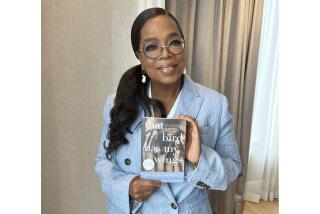‘Fatal Vision’ case: Jeffrey MacDonald decision is now with judge
A seven-day hearing in federal court in North Carolina for convicted murderer Jeffrey MacDonald has concluded, 33 years after the former Army doctor was found guilty of killing his pregnant wife and two young daughters in 1970.
In closing arguments in Wilmington, N.C., late Tuesday, MacDonald’s lead lawyer asked a federal judge to vacate his conviction based on new evidence. Gordon Widenhouse said that any jury hearing the new evidence would find the former surgeon not guilty.
The prosecution argued that the new evidence – three hair samples and sworn statements by a former U.S. deputy marshal, now dead – is inconclusive and not sufficient to prove that MacDonald was wrongly convicted of killing his wife, Colette, and daughters Kimberley, 5, and Kristen, 2, at their home in Ft. Bragg, N.C., on Feb. 17, 1970.
PHOTOS: The Jeffrey MacDonald case
The two sides have 60 days each to file further motions before U.S. District Court Judge James C. Fox makes his ruling in the case.
MacDonald, 68, is serving three life sentences after being convicted by a federal jury in 1979. He has steadfastly maintained that four intruders – including a woman in a floppy hat who chanted “Acid is groovy, kill the pigs’’ – knocked him unconscious and killed his family. MacDonald suffered contusions, stab wounds and a collapsed lung.
Prosecutors at the 1979 trial theorized that MacDonald’s wounds were either self-inflicted or from a violent fight with his wife, and that he staged the murder scene to cover up his guilt.
The lurid case became the basis of a bestselling 1983 book “Fatal Vision,’’ and a hit TV miniseries. The word “pig’’ was scrawled in blood on a headboard at the home, evoking comparisons to the Charles Manson cult murders in California six months earlier. The same word was written in blood at that murder scene as well.
In a rare legal victory, MacDonald was granted the hearing by a federal appeals court that ruled he was entitled to have the new evidence heard in the broader context of the entire case. Fox granted both sides considerable leeway in a hearing that sometimes veered far from the new evidence while probing events from decades ago.
Both sides agreed that the three “unsourced hairs’’ did not belong to anyone in the MacDonald family, based on DNA tests conducted in 2006. The defense argued that the hairs belonged to intruders, but offered little testimony or evidence to support that contention during the hearing.
Prosecutors said the hairs could have been contaminated over the years or mixed with other unidentified debris from the home. They also said the hairs contained no blood and had not been yanked out by the roots, as in a struggle. In pre-hearing motions, they also contended that the hairs could have come from visitors to the home prior to the murders.
Much of the hearing focused on wildly divergent claims by Helena Stoeckley, a troubled drug abuser who the defense says was the woman in the floppy hat. Stoeckley, who died in 1983, told some people she had nothing to do with the murders, but told others that she was at the murder scene and saw her boyfriend and another man commit the murders.
At the 1979 trial, Stoeckley testified that she knew nothing about the killings. She said she was so debilitated by mescaline, heroin and other drugs that she remembered nothing of the day of the murders.
MacDonald’s lawyers presented statements by a former U.S. deputy marshal, Jimmy Britt, that the lead government prosecutor told Stoeckley the day before her testimony that he would charge her with murder if she testified that she was present at the murder scene. A defense witness said Stoeckley later told her that she wanted to testify about her role in the killings but feared retaliation from the prosecutor.
Last week, two prosecution witnesses — including former lead prosecutor James Blackburn — testified that Britt was not in the room when Blackburn interviewed Stoeckley about her upcoming testimony. The prosecution also introduced testimony and evidence that two other marshals, not Britt, drove Stoeckley to the 1979 trial, undercutting Britt’s claim that Stoeckley confessed to him as he drove her to court.
Prosecutors also pointed out that DNA from the three hairs matches neither Stoeckley nor her then-boyfriend, Greg Mitchell, who died in 1982.
Through many of the participants in the case have died, the hearing pitted a defense lawyer from the 1979 trial against two prosecutors from that trial. There was also a parade of witnesses who described wildly divergent conversations with Stoeckley about the murders.
Also in court were “Fatal Vision’’ author Joe McGinniss and Kathryn MacDonald, who married MacDonald in a prison ceremony in 2002 and later helped round up some of the defense witnesses at the hearing. Across the courtroom sat Colette’s brother, Robert C. Stevenson, 73, who said he is still convinced that his former brother-in-law slaughtered his own family.
ALSO:
Texas congressional candidates debate -- in Spanish
Watchdog group faults states’ inspections of oil, gas wells
Paula Deen blooper reel: Butter Queen gets raw, uncensored
david.zucchino@latimes.com
More to Read
Sign up for Essential California
The most important California stories and recommendations in your inbox every morning.
You may occasionally receive promotional content from the Los Angeles Times.











